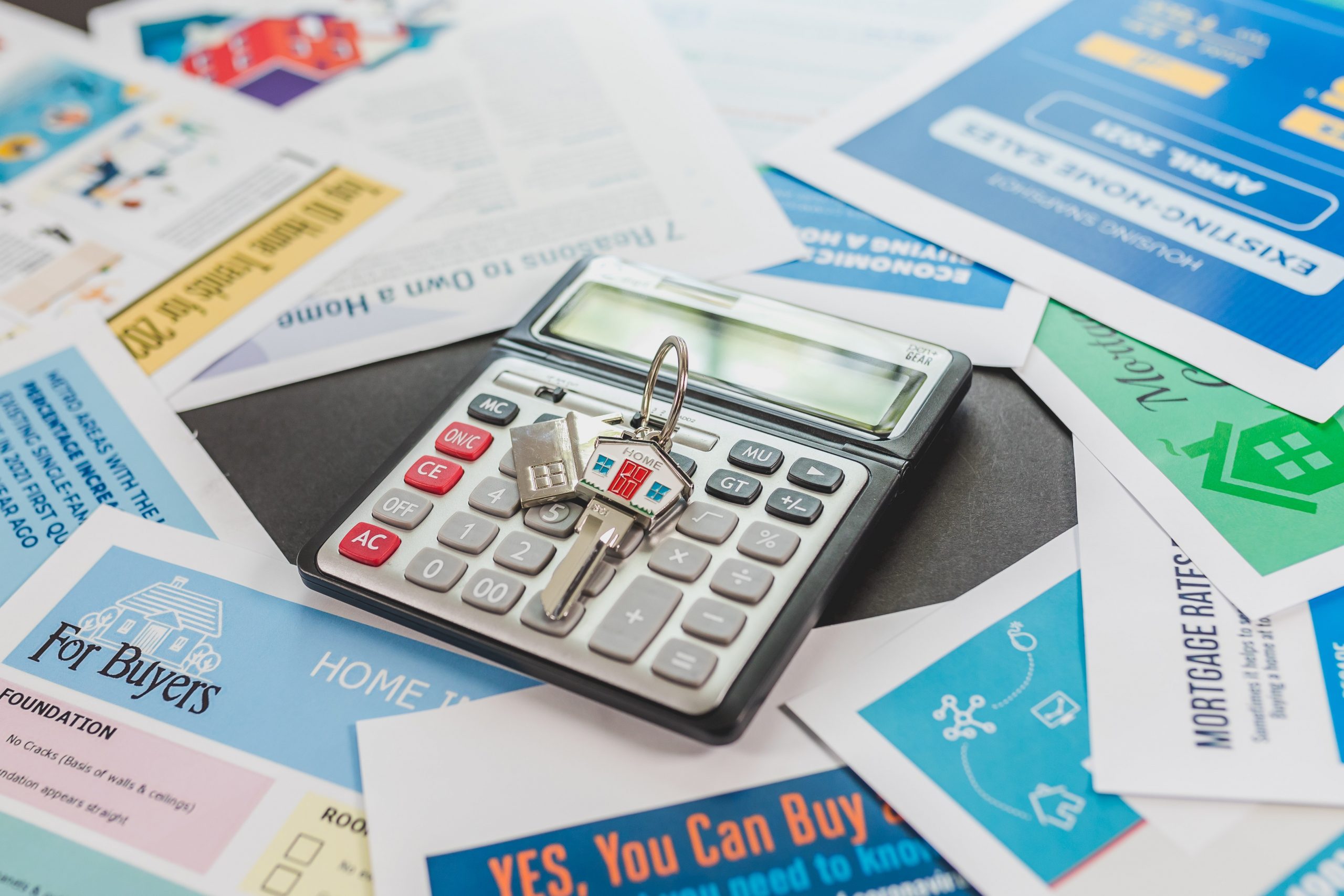How to Choose the Right Real Estate Agent

It can be a challenge to find the right real estate agent. How do you know if you’ve found the right one? What qualities should you look for when selecting an agent? We’ve put together the ultimate list of 7 critical qualities your real estate agent should possess.
1. Licensed
This sounds basic, but you’d be surprised by how many people market themselves as “agents” when they don’t hold a valid, current real estate license. Licensed agents are held to the standards and responsibilities governed by the state’s real estate commission. The laws for real estate vary by state but make sure that the person handling your sale is a qualified and licensed real estate agent in good standing.
How can you check? Ask for his or her agent number. Then you can double check the name and agent number on your state’s real estate commission website. (You can find your state’s real estate commission website by typing in “real estate commission” and your state on your favorite search engine.)
2. Readily Available
Real estate is an unpredictable business, and you don’t want to lose out on a sale or closing on a deal because your agent wasn’t immediately available when someone showed interest.
Consider hiring an agent who works within a team. If your agent isn’t immediately available to respond to inquiries for some reason, another agent on the team can step in and not leave you hanging without an agent.
Great agents should be comfortable with constant communication and prompt replies. They should be willing to communicate via phone, text, or email, even after business hours.
3. Knowledgeable
Look for an agent who has a successful sales record in your area. Markets vary considerably and great agents know the ins and outs of your particular city or town. Even if an agent has years of experience, she or he may not have the local knowledge to be successful in your particular area.
Also, make sure that your agent specializes in the type of property you’re handling. If you’re buying or selling a residential property be sure to work with a residential agent. Your agent needs to be knowledgeable in the type of real estate you’re dealing with because not all markets are the same.
4. Backed by Local Data
Your agent should know how to retrieve localized data and use it effectively. Local data points, including buyer demographics (who they are, where they are) and housing trends (top regions, average value of similar homes, home improvement spending), can be used to price your home competitively, market appropriately, and negotiate intelligently.
5. Well Connected and Reputable
Look for an agent who already has a list of prospective buyers or who works within a well-known and well-connected real estate agency. The more people and agents that your agent knows, the more likely they’ll be to sell your home quickly.
Similarly, a well-connected agent can promote your listing to their network of out-of-state and international buyers. People buying from afar are more likely to purchase a home if it’s recommended by someone whom they know, like and trust.
In other words, the size and quality of your agent’s network can greatly expand your pool of potential buyers, by putting the listing in front of out-of-state and international prospects.
And don’t forget to read the testimonials from previous clients before hiring an agent.
6. Honest
When it comes to selling your home, you want your agent to be brutally honest about what your home is worth and what you can do to raise the value of your home. Don’t take it personally if your agent tells you to rip out that shag rug or repaint the neon lime walls in your home. They know what sells.
Also, your agent should be transparent about how he or she determined the price. You should be able to see which resources were used to estimate the value and how the amenities of the listing impact the price.
7. Tech Savvy
Gone are the days of people finding home listings through the newspaper or real estate advertisements. You need your agent to know the ins and outs of selling a home online. From Zillow and Trulia and every other real estate website in between, they need to have a strong online presence to sell your home.
Most buyers won’t even come to see a home if there isn’t a great online description, accompanied by both images and videos of the property. Look at your agent’s portfolio of homes for sale to see how they represent their other clients’ properties. You want an agent who creates HD videos and high-resolution images for prospective buyers to see.
Your real estate agent can make or break your home buying or selling experience. Always meet an agent in person before hiring one and ask tons of questions to make sure he or she has qualities of a great agent.
How to Sell a House That Still Has a Mortgage

Most people won’t live in the same home for 30 years, the typical life of a mortgage loan. So, when it comes time to sell, many homeowners still have mortgage debt to deal with. Is this a problem? What happens to your mortgage when you sell your home?
Once you sign your name on a mortgage loan, you are responsible for the money—no one else. This means that you must pay it back, which you can do with the money you gain from selling your home.
The truth of the matter is that selling a house with a mortgage is a common occurrence. Consult with your mortgage lender and your real estate agent to find out how you can sell a home with a mortgage. Here are a few tips that they might share with you.
Check Your Mortgage
The first step to selling a house with a mortgage is to contact your mortgage lender and ask about your current mortgage. You want to know:
Your current mortgage payoff amount
Your due-on-sale clauses
Your mortgage payoff amount is the exact amount of money, including accrued interest that you owe to the bank. This amount is typically good for 10-30 days and represents the outstanding loan balance that you must pay. The last thing you want to do is default on your mortgage.
The due-on-sale clauses reveal the exact rules of how to sell a house you still owe money on. It covers such information as when the paid-in-full loan is due and what the process is, including any fees. The clauses won’t tell you who you can or can’t sell your home to, but they may need some additional information about the buyer’s mortgage lender. Be sure to ask any questions you might have about these clauses, so you have a full understanding before you take the plunge and start your sale.
Selling Your Home
Once you know the ins and outs of your loan terms, it’s time to get to selling a house with a mortgage, which can get slightly complicated. First, you’ll want to work with a title company.
If your current lender doesn’t set you up with a title company, you can hire an agent on your own. This agent will be responsible for ensuring that there are no issues with your property’s title, and act as the intermediary throughout the entire purchase and sale process.
Here’s what happens to your mortgage when you sell your home and use a title company:
The title agent holds the money from the new buyer during the sale
After you sign all the documents at the closing table, the title agent uses the sale money to pay your current mortgage holder
Once the amount has been paid, the title transfers to the buyer and you, as the seller, are given the leftover money (minus various fees)
If the sale covers the full cost of the current loan, it’s a fairly smooth process. However, if you owe more than your home is actually worth—negative equity—there could be some trouble. In that case, you’ll have to work out a deal with your lender for a reduced payoff amount, or you may need to refinance and stay in your home for longer than you planned.
In the end, selling a home with a mortgage shouldn’t be a problem. The most important thing is to know your options, so that you can make the right decisions.
Oahu’s housing market sails into uncharted waters

Oahu’s housing market sails into uncharted waters. According to resales figures by the Honolulu Board of Realtors®, the median sales price for single-family homes and condos rose slightly to $809,000 and $450,000, respectively. Closed sales for single-family homes and condos dropped more than 20%, and new listings decreased by 42%, compared to this time last year. The full impact of the virus, job losses, and drop in consumer confidence will be seen in the May figures. One factor to keep in mind is that this is a pandemic and not an economic crisis like what we experienced in 2007-2009 so the effect on home price may not be as significant compared to what we saw a decade ago.
“We still haven’t seen the full effect of COVID-19 on the real estate market in Hawaii,” says Kalama Kim, principal broker at Coldwell Banker Pacific Properties. “May closings will portray a more accurate picture of what happened during the months of March and April, because transactions take 30 to 60 days to close and be recorded.”
The bulk of sales activity for single-family homes occurred in mid-range price points — between $500,000 to $999,999, however even in this market segment, closed sales were down 28%.
At the end of April and into May, the City and County of Honolulu lifted some restrictions on real estate operations, allowing for limited in-person showings. Property showings must be by appointment only, buyers must be pre-qualified, and no more than three individuals (including the agent) are allowed at one appointment. HBR still recommends all open houses be conducted virtually.
There continues to be a slowdown in the number of new listings coming onto the market due to stay-at-home orders that went into effect on March 23.
New single-family home and condo listings in the $1 million-and-up range saw the largest declines at 51.4% and 58.1%, respectively, when compared to this time last year.
“Eighty-eight percent of the offers accepted by seller’s during the month of April were under $1 million,” adds Kim. “This may be due to first-time homebuyers and those in temporary housing driving demand, while the higher-priced segment of the market are taking a wait-and-see approach.”
Although mortgage rates have dipped to all-time lows, lenders are tightening credit standards, thereby limiting the pool of buyers who can leverage this opportunity in their favor.
Yet, despite the challenges, Realtors® continue to help serious buyers secure their perfect home.

Not surprisingly, with the entire state under stay-at-home orders since March 23, closed sales in April were sluggish. The number of single-family homes closed in April was down 22%, from 318 a year ago, to 248 last month.
Condo sales were even less active — down 27.9% — from 476 units closed in April 2019, to 343 closings last month.

Possibly due to a large reduction of inventory, demand for the remaining listings was strong, and median sales prices — single-family and condo — were up.
Single-family home MSP gained 5.5%, from $766,760 in April 2019 to $809,000 last month. And the MSP for a condo was up 7.4%, from $418,950 a year ago, to $450,000 last month.
“While accepted offers dropped almost 40% as compared to last year, new listings on the market dropped by 45% in April, reducing overall inventory by 24%,” says Kim. “That explains why many of our listings were receiving multiple offers.”
After the first four months of 2020, the MSPs in both segments are up, year-to-date. MSP for SF homes is at $788,500 and for condos is at $434,000 gains of 1.7% and 4.6%, respectively.
NEIGHBORHOOD MARKET STANDOUTS
HBR reports statistics on a monthly basis. Island-wide stats are based on figures from the previous month, however, individual neighborhood stats are from two months previous. The most recent neighborhood report is from data collected in March, and does not reflect the current environment — April data may likely be radically different.
This month’s standouts, for continuity, will be taken from the Island-wide April statistics — the most recently gathered. The following table reflects the price points where sellers received the highest percentage of their original list price, and where most of the number of closed sales took place.

SOURCE: Honolulu Board of REALTORS® , compiled from MLS data.

 Facebook
Facebook
 X
X
 Pinterest
Pinterest
 Copy Link
Copy Link








